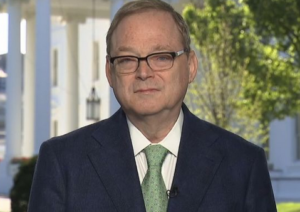In a notable political development, Burkina Faso, Mali, and Niger have officially withdrawn from the Economic Community of West African States (ECOWAS), citing double standards in ECOWAS's approach towards military governance. This move gives rise to a new regional alliance, the Alliance of Sahelian States.**
Withdrawal of Three Nations From ECOWAS Signifies Shift in West African Politics**

Withdrawal of Three Nations From ECOWAS Signifies Shift in West African Politics**
Burkina Faso, Mali, and Niger formally exit the ECOWAS alliance, challenging the regional bloc's authority amid claims of neocolonialism.**
In a significant shift within West African geopolitical dynamics, Burkina Faso, Mali, and Niger have officially exited the Economic Community of West African States (ECOWAS). The announcement was made on Wednesday, January 29, 2025, amidst escalating tensions between these countries and the regional bloc that has long advocated for the restoration of civilian rule in the region.
The three nations have been under military governance and accused ECOWAS of hypocrisy by failing to treat all member states equally. Their leaders have labeled ECOWAS as facilitating a neocolonial agenda. "ECOWAS and the jihadists are the same," stated Mali’s President Assimi Goïta, referring to the ongoing instability caused by extremist groups throughout the Sahel region.
Despite negotiations aimed at maintaining their membership in ECOWAS, discussions fell through, prompting these countries to pursue their own collaborative initiatives. They have formed the Alliance of Sahelian States (A.E.S.) and established a joint military force comprising 5,000 troops.
This exit marks a critical juncture for ECOWAS, which celebrated its 50th anniversary in May and now sees its member count drop to 12, following earlier departures. Although Burkina Faso, Mali, and Niger are not the largest players in terms of population or economy, their combined land area constitutes over half of ECOWAS’s territory and represents about 17% of the region's population of 400 million people.
The effects of this withdrawal could be profound, drastically altering the landscape of cooperation and security alliances in West Africa, as the newly formed A.E.S. positions itself as a counterforce to the existing regional structures.
The three nations have been under military governance and accused ECOWAS of hypocrisy by failing to treat all member states equally. Their leaders have labeled ECOWAS as facilitating a neocolonial agenda. "ECOWAS and the jihadists are the same," stated Mali’s President Assimi Goïta, referring to the ongoing instability caused by extremist groups throughout the Sahel region.
Despite negotiations aimed at maintaining their membership in ECOWAS, discussions fell through, prompting these countries to pursue their own collaborative initiatives. They have formed the Alliance of Sahelian States (A.E.S.) and established a joint military force comprising 5,000 troops.
This exit marks a critical juncture for ECOWAS, which celebrated its 50th anniversary in May and now sees its member count drop to 12, following earlier departures. Although Burkina Faso, Mali, and Niger are not the largest players in terms of population or economy, their combined land area constitutes over half of ECOWAS’s territory and represents about 17% of the region's population of 400 million people.
The effects of this withdrawal could be profound, drastically altering the landscape of cooperation and security alliances in West Africa, as the newly formed A.E.S. positions itself as a counterforce to the existing regional structures.























